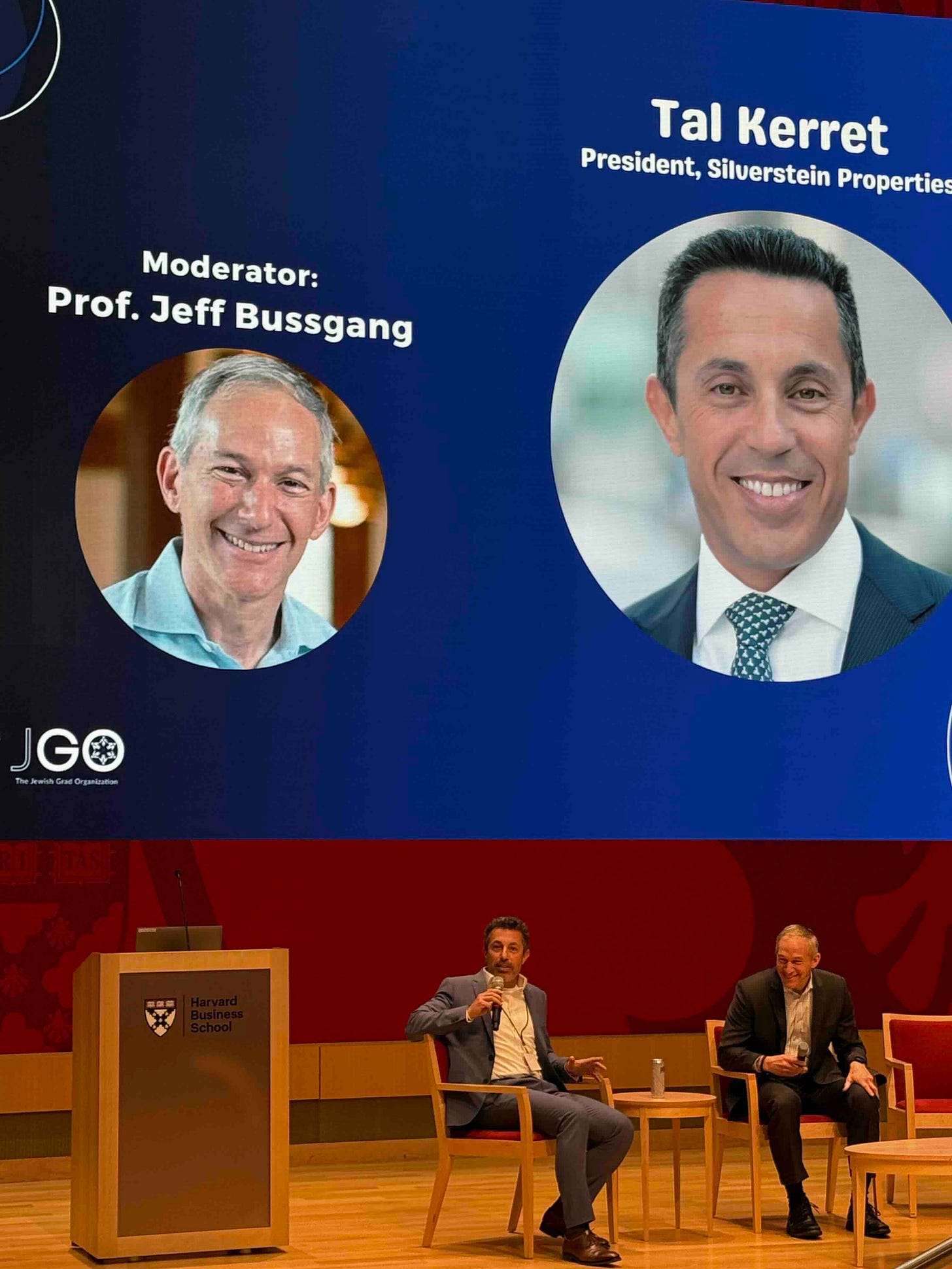Surprise Guest With Trump and Saudi Crown Prince: World Trade Center Developer Larry Silverstein
Along with his Israeli-American son-in-law

Fifteen of the 19 hijackers who committed the September 11, 2001, terrorist attack were from Saudi Arabia. That attack took down the twin towers in Manhattan that Larry Silverstein’s company, Silverstein Properties, had just taken control of with a 99-year lease. It took two decades to rebuild. It would be natural for Silverstein to hold a grudge.
But when Saudi Crown Prince Mohammed bin Salman shows up in Washington this week to meet President Trump, Silverstein, 94, will be there, said the developers’s son-in-law, Tal Kerret, the president of Silverstein Properties. Kerret, a former Israel Defense Forces officer, will be there too.
Kerret left unclear precisely what Wednesday’s announcement might involve. It could be a Silverstein Properties development in Saudi Arabia, which is undergoing a building boom. It could be a campus or health-care deal involving NYU, where the Silverstein family has long been active. NYU already has a campus in Abu Dhabi.
“My father-in-law always believed that the future has to do with connecting people,” said Keret.
Kerret made his comments Sunday November 16 on the stage at Klarman Hall of Harvard Business School, interviewed by Harvard Business School lecturer Jeffrey Bussgang during a daylong conference on “Jewish Resilience and Innovation” organized and hosted by the Jewish Student Association there.
Trump told reporters today that the U.S. will approve the sale of F-35 fighter jets to Saudi Arabia. That has raised some concerns that China could access the technology or that the sale would erode Israel’s military edge. Some have suggested making the sale conditional on Saudi Arabia joining the Abraham Accords. Trump’s May 2025 visit to Saudi Arabia, Qatar, and the United Arab Emirates was largely focused on getting those nations to pledge investments in the U.S. economy.
Another panel at Sunday’s conference was devoted to Israel’s startup sector. Yaron Samid, the founder and managing partner of TechAviv, said Israel has been “behind” on artificial intelligence. He said that gives investors an opportunity to get involved at valuations that are lower than if the companies were based in San Francisco. “We’re building foundation models in Israel quietly. We don’t have the hype,” he said. He said investors in the TechAviv network—including, he said, Michael Dell, Bill Ackman, Larry Ellison, Mark Cuban, and Reid Hoffman—want to invest in companies that will become Israel’s AI leaders.
“AI is just the wave of our lifetime,” said David Frankel, managing partner of Founder Collective. Frankel was introduced by his panel’s moderator, Harvard professor Paul Gompers, as the Tom Brady of venture capital. Gompers said he is writing a case on Decart, an Israeli AI company that Sequoia Ventures’ Sean Maguire and Dean Meyer liken to Google. (Okay, there’s some hype, just not as much as in California.)
Calcalist has an interview with the Decart founders:
“When we founded Decart, we decided we wanted to solve a truly massive problem,” Leitersdorf says. “It took us a year to admit that this wasn’t going to be a two-year startup. It would take five years to build something that, when people look at the world before and after, there’s a real difference. Like the iPhone. Like Google Search. Like Facebook. Like nuclear weapons. Like the State of Israel. We said: let’s try to build a company like that. It’s ambitious, it’s risky, and there’s a good chance it won’t work—but once in a lifetime, you have to try.”
The Seed round in August 2024 brought in $21 million and was led by Sequoia Capital. The second round, in November, valued the company at half a billion dollars and was led by Benchmark. In fact, Sequoia’s decision to reopen its Israeli office during the war is widely attributed to its investments in Decart and Kela—two wartime startups now seen as among the fund’s most promising bets….Decart’s beginnings weren’t smooth. The company was officially registered on September 7, 2023. A month later, both founders were called up for reserve duty and remained there for months.
Much of the rest of the conference was devoted to extolling entrepreneurship in general and Israeli entrepreneurship in particular. “I don’t think there has ever been a better time to invest in Israeli founders,” Samid said, speaking of “superhuman resiliency in the middle of a war.”
“These founders now are unstoppable,” he said.
A speaker on a subsequent panel, Dorit Levy-Zilbershot, spoke of her seven years in the Israel Defense Forces with “the mindset that you can solve any problem.” She said, “there’s no ‘no’ in our dictionary.” The Israeli intelligence units were nonhierarchical and reviewed actions afterward to learn and improve.
Frankel also spoke of an “Israeli expat tech ecosystem” which another panelist said is strong in New York, Miami, and Austin. Another panelist, Gil Zimmerman, said the Israeli Americans are “aggressive nonabrasive,” the “best of both worlds.”
For all the celebration of entrepreneurs and startups, though, there were also notes of caution. Samid said founders are people who say “I’m not employable…I’m going to go chase my dream” even if it costs them a steady paycheck, a good relationship with their spouse, or work-life balance. “The first thing I say is, don’t do it,” he said.
Thank you: The Editors is a reader-supported publication that relies on paying customers. If you know someone who would enjoy or benefit from reading The Editors, please help us grow, and help your friends, family members, and associates understand the world around them, by forwarding this email along with a suggestion that they subscribe today. Or send a gift subscription. If it doesn’t work on mobile, try desktop. Or vice versa. Or ask a tech-savvy youngster to help. Thank you to those of who who have done this recently and thanks in advance to the rest of you.


